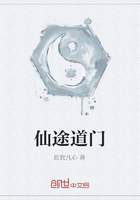THE OFFICERS would have taken leave, but Prince Andrey, apparently unwilling to be left alone with his friend, pressed them to stay and have some tea. Benches were set, and tea was brought. With some astonishment the officers stared at Pierre’s huge, bulky figure, and heard his talk of Moscow, and of the position of our troops, which he had succeeded in getting a view of. Prince Andrey did not speak, and his face was so forbidding that Pierre addressed his remarks more to the ******-hearted Timohin than to Bolkonsky.
“So you understand the whole disposition of the troops?” Prince Andrey put in.
“Yes. At least, how do you mean?” said Pierre. “As I am not a military man, I can’t say I do fully; but still I understand the general arrangement.”
“Well, then, you know more than anybody else,” said Prince Andrey.
“Oh!” said Pierre incredulously, looking over his spectacles at Prince Andrey. “Well, and what do you say of the appointment of Kutuzov?” he asked.
“I was very glad of his appointment; that’s all I know,” said Prince Andrey.
“Well, tell me your opinion of Barclay de Tolly. In Moscow they are saying all kinds of things about him. What do you think of him?”
“Ask them,” said Prince Andrey, indicating the officers.
With the condescendingly doubtful smile with which every one addressed him, Pierre looked at Timohin.
“It was a gleam of light in the dark, your excellency, when his highness took the command,” said Timohin, stealing shy glances continually at his colonel.
“Why so?” asked Pierre.
“Well, as regards firewood and food, let me tell you. Why, all the way we retreated from Sventsyan not a twig, nor a wisp of hay, nor anything, dare we touch. We were retreating, you see, so he would get it, wouldn’t he, your excellency?” he said, turning to his prince, “but we mustn’t dare to. In our regiment two officers were court-martialled for such things. Well, since his highness is in command, it’s all straightforward as regards that. We see daylight …”
“Then why did he forbid it?”
Timohin looked round in confusion, at a loss how to answer such a question. Pierre turned to Prince Andrey with the same inquiry.
“Why, so as not to waste the country we were leaving for the enemy,” said Prince Andrey, with angry sarca**. “That’s a first principle: never to allow pillage and accustom your men to marauding. And at Smolensk too he very correctly judged that the French were the stronger and might overcome us. But he could not understand,” cried Prince Andrey in a voice suddenly shrill, “he could not understand that for the first time we were fighting on Russian soil, that there was a spirit in the men such as I had never seen before, that we had twice in succession beaten back the French, and that success had multiplied our strength tenfold. He ordered a retreat, and all our efforts and our curses were in vain. He had no thought of treachery; he tried to do everything for the best and thought over everything well. But for that very reason he was no good. He is no good now just because be considers everything soundly and accurately as every German must. How can I explain to you. … Well, your father has a German valet, say, and he’s an excellent valet and satisfies all his requirements better than you can do and all’s well and good; but if your father is sick unto death, you’ll send away the valet and wait on your father yourself with your awkward, unpractised hands, and be more comfort to him than a skilful man who’s a stranger. That’s how we have done with Barclay. While Russia was well, she might be served by a stranger, and an excellent minister he was, but as soon as she’s in danger, she wants a man of her own kith and kin. So you in your club have been ****** him out to be a traitor! They slander him now as a traitor; and afterwards, ashamed of their false accusations, they will suddenly glorify him as a hero or a genius, which would be even more unfair to him. He’s an honest and conscientious German …”
“They say he’s an able general, though,” said Pierre.
“I don’t know what’s meant by an able general,” Prince Andrey said ironically.
“An able general,” said Pierre; “well, it’s one who foresees all contingencies … well, divines the enemy’s projects.”
“But that’s impossible,” said Prince Andrey, as though of a matter long ago settled.
Pierre looked at him in surprise.
“But you know they say,” he said, “that war is like a game of chess.”
“Yes,” said Prince Andrey, “only with this little difference, that in chess you may think over each move as long as you please, that you are not limited as to time, and with this further difference that a knight is always stronger than a pawn and two pawns are always stronger than one, while in war a battalion is sometimes stronger than a division, and sometimes weaker than a company. No one can ever be certain of the relative strength of armies. Believe me,” he said, “if anything did depend on the arrangements made by the staff, I would be there, and helping to make them, but instead of that I have the honour of serving here in the regiment with these gentlemen here, and I consider that the day really depends upon us to-morrow and not on them. … Success never has depended and never will depend on position, on arms, nor even on numbers; and, least of all, on position.”
“On what then?”
“On the feeling that is in me and him,” he indicated Timohin, “and every soldier.”














